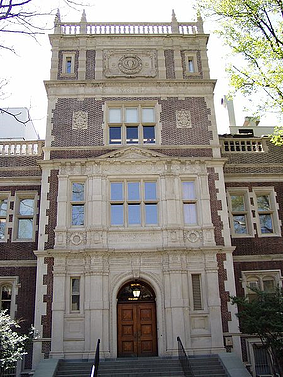A new study by researchers at the University of Pennsylvania has findings that suggest a new way ECMO, or extracorporeal membrane oxygenation, can help treat patients with shock and cardiac arrest. ECMO has been used in the past during cardiac surgeries as a way to replace patients’ heart and lung function. According to Health Canal, researchers at the University of Pennsylvania have made a breakthrough in using this intervention to save the lives of patients who are unable to be resuscitated.
“Over the last decade, we have made great strides in the field of cardiac resuscitation science, including the development of novel methods of therapeutic hypothermia and the use of cardiac bypass following cardiac arrest,” said associate professor at the University of Pennsylvania and lead study author David Gaieski, MD. “Yet cardiac arrests still take the lives of more than 300,000 Americans each year, and we are continuing to explore how to use new and expanded strategies to help save these patients. Based on the work of our colleagues in Asia, we sought to report our own experience using ECMO for a select set of patients with refractory cardiac arrest and profound shock.”
This kind of research is possible at research institutions like the University of Pennsylvania due to significant research funding focused on basic science research programs. In 2012, the NSF provided $32 million in research funding to the University of Pennsylvania. Of that funding, $2 million went towards life science research projects.

University of Pennsylvania School of Medicine
Image courtesy of Jeffrey M. Vinocur and Wikimedia Commons
In addition to receiving NSF funding, the University of Pennsylvania was also awarded $455 million in research funding from the NIH in 2012. The NIH ranked the University of Pennsylvania third in the country for direct plus indirect costs in life science expenditures, excluding R&D contracts and ARRA awards in 2011.
In other recent funding news, the University of Pennsylvania received $25.5 million in research funding for the Abramson Cancer Center. After receiving $26 million for stem cell research, they were declared the second highest funded university in the United States for NIH stem cell research between the years 2010- 2011.
If you are a lab supplier or biotechnology vendor interested in marketing your life science solutions and university lab equipment at the University of Pennsylvania, Biotechnology Calendar, Inc. invites you to attend our annual Philadelphia BioResearch Product Faire™ Event held on the University of Pennsylvania campus. Biotechnology Calendar, Inc. is a full-service science research marketing and event-planning company that has been organizing life science marketing events at top research institutions across the nation for 20 years.
Last year, the Philadelphia BioResearch Product Faire™ Event was visited by 465 people. Of those attending, 140 were purchasing agents, professors and post docs, and 72 were lab managers. The visitors to this life science marketing event came from 56 different research buildings and 65 departments across campus. If you are interested in marketing your life science solutions and university lab equipment at a life science marketing event closer to home, we encourage you to check out our 2013 calendar of events. For more funding information on the University of Pennsylvania, click on the button below.


